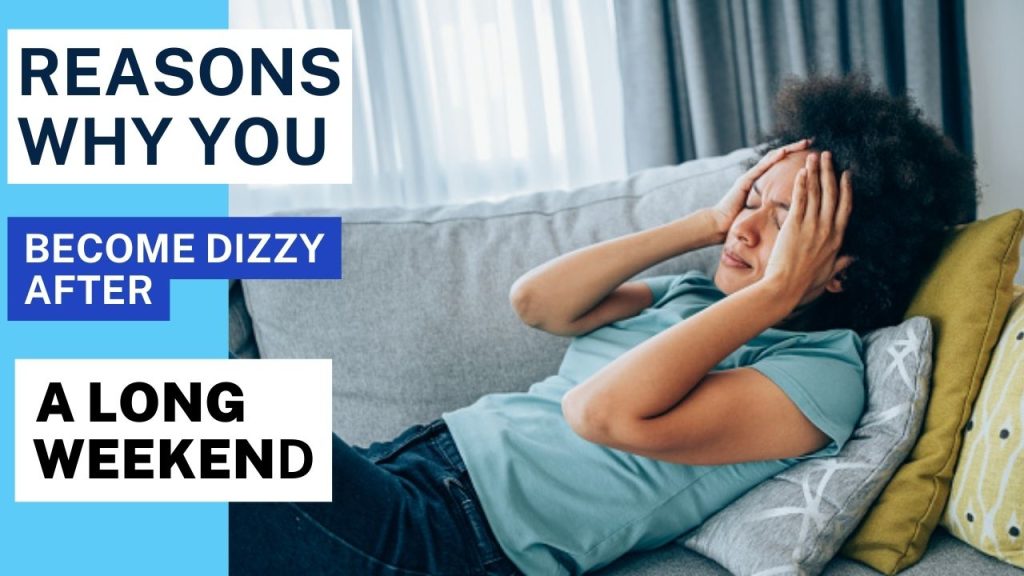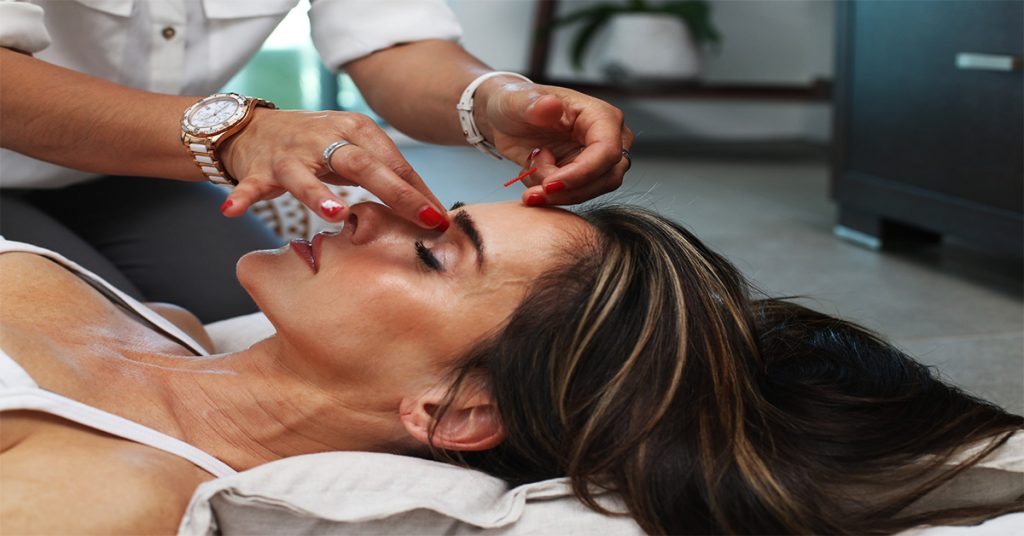One of the most common symptoms experienced after a weekend is dizziness. But what are the reasons behind it? And more importantly, what can be done to prevent or minimise its effects? In this post, we take a look at some of the most common causes of dizziness after a long weekend and offer up advice on how to avoid them. Let’s get started!
13 Reasons Why You Become Dizzy after a Long Weekend

1. You dehydrate yourself during a long weekend.
Dehydration is one of the most common reasons why people experience dizziness, especially after a long weekend of partying or drinking. When you don’t drink enough fluids, your body doesn’t have enough water to function properly, which can lead to lightheadedness, dizziness, and even fainting.
2. You eat too much salty food.
Eating a lot of salty foods can also cause you to become dehydrated, as your body retains water to try and balance out the high sodium levels. This can lead to symptoms such as low blood pressure, which can cause you to feel dizzy.
3. You drink alcohol
Drinking alcohol can also lead to dehydration, as it is a diuretic that causes your body to lose water. Alcohol can also interfere with the balance of electrolytes in your body, which can further contribute to feelings of dizziness and lightheadedness.
4. You don’t eat enough.
If you don’t eat enough food, your blood sugar levels can drop, which can cause you to feel dizzy and lightheaded. It’s important to make sure you’re eating regular meals and snacks throughout the day to keep your blood sugar levels stable.
5. You don’t get enough sleep.
Not getting enough sleep can also lead to dizziness, as it can cause your blood pressure to drop and your body to become fatigued. Make sure you’re getting at least 7-8 hours of sleep each night to avoid feeling dizzy during the day.
6. You stand up too quickly.
If you stand up too quickly, your blood pressure can drop and you may feel dizzy or lightheaded. This is due to a sudden change in blood flow from your legs to your head. To avoid this, make sure you stand up slowly and steady yourself before walking.
7. You have an ear infection.
An ear infection can cause you to feel dizzy or lightheaded as it can affect your balance and inner ear. If you suspect you have an ear infection, see a doctor as soon as possible.
8. You have low blood pressure.
Low blood pressure can be caused by various factors, such as dehydration, pregnancy, and certain medications. If you have low blood pressure, you may feel dizzy or lightheaded when you stand up or after standing for long periods of time.
9. You have a cold or the flu.
A cold or the flu can also lead to dizziness, as it can cause your body to become dehydrated and your blood pressure to drop. If you’re feeling dizzy due to a cold or the flu, make sure you drink plenty of fluids and rest as much as possible.
10. You’re pregnant.
During pregnancy, your blood pressure can drop and you may feel dizzy or lightheaded. This is due to the increased blood flow to your pelvis and the growing baby putting pressure on your blood vessels. If you’re feeling dizzy during pregnancy, make sure you drink plenty of fluids and rest when possible.
11. You have anxiety or depression.
Anxiety and depression can both lead to dizziness, as they can cause your blood pressure to drop and your body to become tense and stressed. If you’re feeling dizzy due to anxiety or depression, see a doctor or mental health professional for help.
12. You have a headache.
Certain types of headaches, such as migraines, can cause dizziness due to the changes in blood flow and pressure they cause. If you’re experiencing a headache along with dizziness, see a doctor to rule out any other potential causes.
13. You have a heart condition.
Certain heart conditions can cause you to feel dizzy or lightheaded, as they can interfere with the normal blood flow and pressure in your body. If you have a heart condition and are feeling dizzy, see a doctor to make sure it’s not affecting your heart health.
What is vertigo and what are the symptoms?

Vertigo is the sensation of feeling off balance or like the room is spinning. It can be caused by a problem with the inner ear, brain, or sensory nerves. People with vertigo often feel nauseous and vomit. They may also have trouble walking or standing up.
There are many reasons why people might experience vertigo, but some of the most common causes include:
- Inner ear infections
- Benign positional vertigo (a condition that occurs when tiny calcium crystals in the inner ear become dislodged and float around)
- Meniere’s disease (a disorder of the inner ear that can cause hearing loss, tinnitus, and vertigo)
- Vestibular neuritis (inflammation of the vestibular nerve, which connects the inner ear to the brain)
- Migraine headaches
If you experience vertigo, it is important to see a doctor to rule out any serious underlying causes. In some cases, vertigo can be treated with medication or physical therapy.
How to treat vertigo – usually includes medication and sometimes surgery.
If you experience vertigo, or dizziness after a long weekend, there are a few things you can do to help ease the symptoms. First, try to stay hydrated and drink plenty of fluids. You can also try over-the-counter medications like meclizine or Dramamine. If your symptoms are severe, you may need to see a doctor for prescription medication. In some cases, surgery may be necessary to treat vertigo. If you experience any of the following symptoms, be sure to contact your doctor:
- severe dizziness or vertigo
- balance problems
- nausea or vomiting
- hearing loss
- tinnitus (ringing in the ears)
- changes in vision
- difficulty speaking
- weakness or numbness in the arms or legs
If you are experiencing vertigo, don’t wait too long to seek medical treatment. The sooner you get help, the sooner you can start feeling better.
What you can do to prevent vertigo?
1. Drink lots of fluids, especially water. This will help keep your body hydrated and prevent dehydration, which can contribute to dizziness.
2. Avoid alcoholic beverages. Alcohol can cause dehydration and can also make you feel lightheaded and unsteady.
3. Get plenty of rest. Your body needs time to recover from a busy weekend, so make sure you get enough sleep.
4. Eat a balanced diet. Eating healthy foods will help your body function at its best and can also help prevent dizziness.
5. Avoid sudden changes in position. Moving too quickly or standing up too fast can trigger dizziness, so take it slow.
6. Avoid strenuous activity. Too much physical activity can also lead to dizziness, so take it easy and rest when you need to.
7. Limit your intake of caffeine. Caffeine can cause dehydration and can also make you feel jittery and agitated, which can exacerbate dizziness.
8. Drink ginger tea. Ginger has been shown to be effective in treating dizziness and nausea.
9. Try acupuncture. Acupuncture can help relieve dizziness by stimulating pressure points in the body.
10. Take vitamin B6 supplements. Vitamin B6 is essential for maintaining balance in the body and can help prevent dizziness.
FAQs
Why do I feel dizzy when I get up after a long time?
There are many possible reasons for feeling dizzy when you stand up. It could be due to dehydration, low blood sugar, or orthostatic hypotension (a sudden drop in blood pressure when you stand up). If you experience this frequently, it’s important to see a doctor to rule out any underlying medical conditions.
Why am I dizzy after a week?
There are many possible reasons for feeling dizzy after a week. It could be due to dehydration, low blood sugar, or an inner ear infection. If you frequently have this issue, you should see a doctor to check if there are any medical conditions causing it.
Is feeling dizzy for 3 days normal?
No, feeling dizzy for 3 days is not normal. If you experience this, it’s important to see a doctor to rule out any underlying medical conditions.
What should I do if I feel dizzy all the time?
If you feel dizzy all the time, it’s important to see a doctor to rule out any underlying medical conditions. Once any underlying causes have been ruled out, there are various treatments that can help alleviate dizziness, such as vestibular rehabilitation therapy and medications.
Why do I feel light-headed when I’m 13?
There are many possible reasons for feeling lightheaded at 13. It could be due to dehydration, low blood sugar, or anaemia. If you experience this feeling frequently, it’s important to seek medical help in order to rule out any possible underlying health issues.
Conclusion
Usually, feeling dizzy is no cause for alarm. It’s simply a matter of time and rest to recover. However, if the dizziness persists or is accompanied by other symptoms, it’s best to see a doctor to rule out any underlying medical conditions. In the meantime, these 13 reasons why you become dizzy after a long weekend should give you some insight into what might be causing your episodes of lightheadedness. Have you experienced any of these triggers? Let us know in the comments below!




